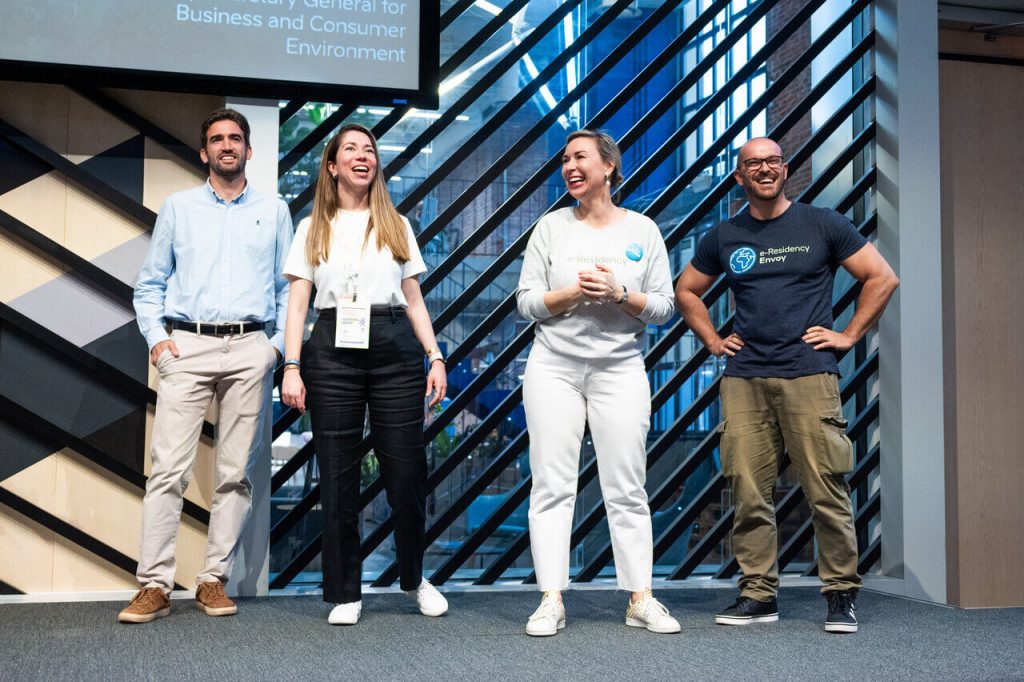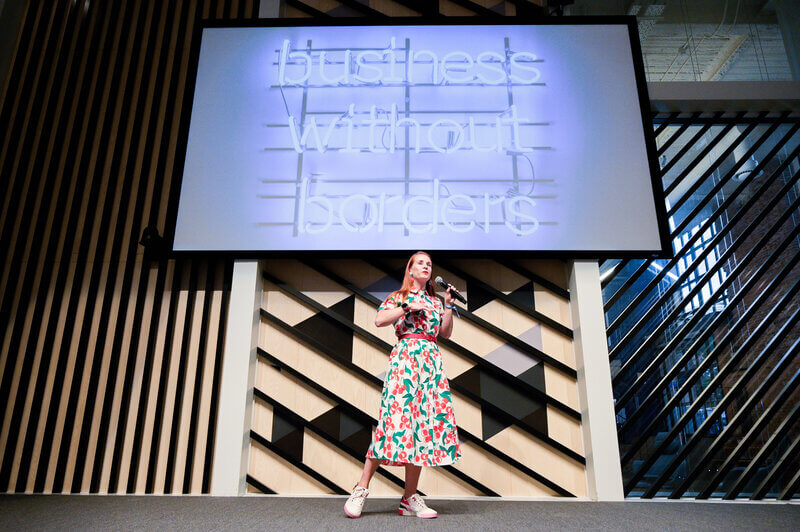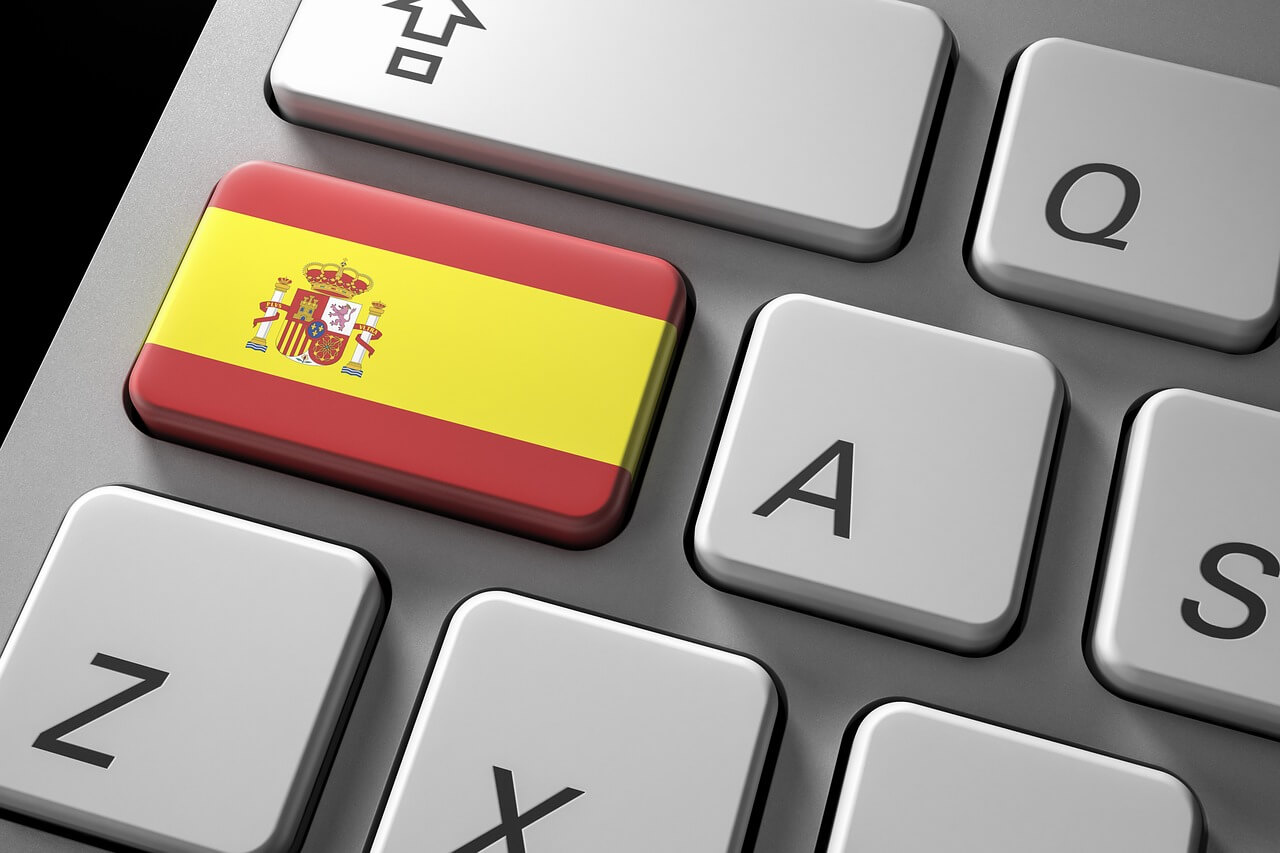a recap of e-Residency at south summit in madrid

Madrid, Spain, is Latitude 40 degrees – halfway from Tallinn to the tropics. Almost as far as you can get from Estonia, and still be in mainland Europe.
Both countries share a relatively recent emergence from repressive rule in the later 20th century, but technologically and sociologically their evolution since then has been very different. Spain is steeped in tradition, and lags far behind Estonia’s world-leading digital transformation and entrepreneurial culture. Indeed, the country’s official paperwork and administration burden is the stuff of memes and legend.
Things are changing though. In 2012, Spanish social entrepreneur Maria Benjumea inaugurated South Summit as a response to the economic crisis and the belief in a sustainable entrepreneurial future.
That initial gathering has grown to become the premier business and innovation showcase for Spain on the global stage. With events now spanning South America as well as the peninsula, it creates a great opportunity for Estonian e–Residency to connect with the pioneers of innovation and opportunity in the Spanish–speaking world.
South Summit: Gateway to Spanish Enterprise
The connection began in 2021, but as business development and partnerships coordinator Taiz Coe explained, e-Residency’s journey with South Summit has evolved considerably in three years.
“When we first went there to promote the programme, including webinars in Spanish, the questions were all about ‘what is e-Residency?’” She explained. Maybe it was something to do with saving tax…? Clearly, the conversation had to start with the basics. Like the possibilities on offer to Spanish founders and entrepreneurs through collaboration with their distant European neighbour.
Fast-forward to South Summit 2023, and a lot has changed. Spain is presently the fastest growing source of Estonian e-residents globally, with 360 applications in the past 3 months alone, and over 1,800 companies formed by Spanish residents to date. Understanding and awareness has grown, and the dialogue for e-Residency at South Summit has become more sophisticated and tactical.
This year, I staffed the booth at South Summit alongside other e-Residency envoys and team members. I watched the faces of those who stopped to look at the display. For many, there was a common moment of recognition, of understanding – ‘ah yes, that’s the place you can open a digital business and run it from anywhere’.
Many of Spain’s autonomous communities had good representation at the Summit, each declaring itself the perfect place to bring your innovative startup. Yet, there were markedly fewer international presences. Team Estonia – with our distinctive blue and white branding – stood out clearly, and enticed many delegates over for a chat (even when we ran out of chocolate.)
Sharing the potential of Estonian e–Residency
Some misconceptions persisted, and yes, we had to talk about tax a lot (it is a ubiquitous subject of conversation for all entrepreneurs in Spain.) But the more interesting conversations were about innovation and vision. Startup ideas, enthused by the atmosphere and content of South Summit and its inspiring talks, were shared by far–sighted founders keen to explore exactly what e-Residency and a base in Estonia could offer their venture.
I spoke to pioneers in audio engineering, sports data management, superfood production, and cybersecurity, to describe a small sample. Many of them already knew about Estonian e-Residency, and quickly grasped the potential the programme could offer for their business.
In Spain, the main options for testing an innovative business idea are to operate as a freelancer with no limited liability protection, or to form a ‘Sociedad Limitada’ business, with a minimum €3,000 share capital. In either case, you risk your discounted social security payments if the idea does not pan out.
Estonia on the other hand derisks the testing of ideas, and actively promotes and rewards entrepreneurial endeavours through a comprehensive network of policies and institutions. This novel approach came out in a lot of conversations we had during South Summit.
“We talked a lot about diversification,” Taiz pointed out. “It’s not just about e-Residency. I talked to people about Invest in Estonia, Startup Estonia, Accelerate Estonia. We were there to present and promote the entire ecosystem that they can instantly connect to, once they open their first Estonian business.“
Indeed, people were surprised to learn about the extent of Estonia’s digital infrastructure and resources to support their potential scale-up, within a country where the population size is half that of Spain’s capital city.
Plenty were keen to learn more, at a special side event held at Tetuan Valley at the Google Startup Campus. Here, Deputy Secretary General for Business and Consumer Environment Sandra Särav introduced Estonia to the crowd, and busted a few myths about the startup country and its digital citizenship programme.

This was followed by a series of multilingual workshops, delivered by the e-Residency team in partnership with Louis Williams, CFA from Entre Trámites, Jose Ignacio Pérez-Fuster from Metricson, and Ignacio Nieto from Companio. Participants were able to self-select into groups according to both business size and language preference.
In these smaller groups, participants were able to dig into the real practical questions: how can you leverage e-Residency in Estonia? What kind of enterprise can you build? How can you be profitable, compliant, and successful?
Despite the long day put in at the expo itself, the e-Residency community meetup persisted late into the night. Every business vision has a story, a vision behind it, and when you find yourself among fellow enthusiasts, then that vision simply has to be shared!
From Madrid to LATAM
For e-Residency, the connections with the Spanish community extend way beyond the borders of Europe. The recent development and additions of Spanish language content and connections extends Estonia’s world of opportunity to South America and beyond.
As Taiz pointed out, for Latin American entrepreneurs, tapping into the EU marketplace has always been difficult and expensive without Estonian e-Residency.
“Now, for just a few hundred euros, businesses can open a European company, and have everything that the EU has to offer – not just the marketplace, but investment, grants, and funds,” she explained.
Plus, a growing number of Spanish-speaking providers in the e-Residency Marketplace can support businesses well beyond European borders. This way, founders can access the world’s largest single market, via the unique digital infrastructure of one of its most compact countries.
From Tallinn to Madrid, to the world – Estonian e-Residency unlocks opportunity wherever it goes, and I was glad to be able to play a personal part in sharing the concept here in Spain. The fact that this exiled Brit can live on the Spanish coast and own and operate an Estonian company for over 5 years, is proof of concept I am glad to offer, and extend to my fellow Spanish residents on any occasion…
And it was wonderful to be among so many who wanted to listen!
More from e-Residency
- Sign up for our newsletter
- Watch fresh video content - subscribe to our Youtube channel
- Meet our team and e-residents - register for our next Live Q&A
